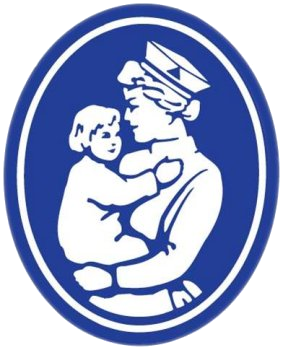


References
Ashburner, J., and Friston, K. (1997). Multimodal image coregistration and
partitioning--a unified framework. Neuroimage6,
209-217.
Ashburner, J., and Friston, K.J. (2000). Voxel-based morphometry--the methods. Neuroimage 11, 805-821.
Bishop,
C.M. (1995). Neural Networks for Pattern Recognition (
Carmena, J.M., Lebedev, M.A., Crist, R.E., O'Doherty, J.E., Santucci, D.M., Dimitrov, D.F., Patil, P.G., Henriquez, C.S., and Nicolelis, M.A. (2003). Learning to control a brain-machine interface for reaching and
grasping by primates. PLoS Biol 1, E42.
Cristianini, N., and Shawe-Taylor,
J. (2000). An introduction to support vector machines and other
kernel-based learning methods (
Dale, A.M., Fischl, B., and Sereno, M.I. (1999). Cortical
surface-based analysis. I. Segmentation and surface reconstruction. Neuroimage9,
179-194.
Desikan, R.S., Segonne, F., Fischl, B., Quinn, B.T., Dickerson, B.C., Blacker, D., Buckner,
R.L., Dale, A.M., Maguire, R.P., Hyman, B.T., et
al. (2006). An automated labeling system for
subdividing the human cerebral cortex on MRI scans into gyral based regions of interest. Neuroimage31,
968-980.
Fell, J., Klaver, P., Lehnertz, K., Grunwald, T., Schaller,
C., Elger, C.E., and Fernandez, G. (2001). Human memory formation is accompanied by rhinal-hippocampal coupling and decoupling. Nat Neurosci4,
1259-1264.
Fischl, B., van der Kouwe, A., Destrieux, C., Halgren, E., Segonne, F., Salat, D.H., Busa, E., Seidman, L.J., Goldstein, J., Kennedy, D.,
et al. (2004). Automatically parcellating the human cerebral cortex. Cereb Cortex 14,
11-22.
Green, D., and Swets, J. (1966). Signal detection theory and psychophysics (
Hung, C., Kreiman, G., Poggio, T., and DiCarlo, J.
(2005a). Fast Read-out of Object Identity from
Macaque Inferior Temporal Cortex. Science 310,
863-866.
Hung, C., Kreiman, G., Poggio, T., and Dicarlo, J.
(2005b). Ultra-fast object recognition from few
spikes. (
Keeping, E.S. (1995). Introduction to
Statistical Inference (
Kreiman, G., Hung, C., Quian Quiroga, R., Kraskov, A., Poggio, T., and DiCarlo, J. (2006). Object selectivity of local field potentials and spikes in the inferior
temporal cortex of macaque monkeys. Neuron 49,
433-445.
Kreiman, G., Koch, C., and Fried,
McCarthy, G., Puce, A., Belger, A.,
and Allison, T. (1999). Electrophysiological studies of human
face perception. II: Response properties of face-specific potentials generated
in
occipitotemporal cortex. Cerebral Cortex 9,
431-444.
Pelli, D. (1997). The VideoToolbox software for visual psychophysics: transforming numbers into movies. Spatial
Vision 10, 437-442.
Press, W.H., Teukolsky, S.A., Vetterling, W.T., and Flannery, B.P. (1996). Numerical Recipes in C, 2nd edn (
Privman, E., Nir,
Y., Kramer, U., Kipervasser, S., Andelman,
F., Neufeld, M., Mukamel, R., Yeshurun,
Y., Fried,
Rayner, K. (1998). Eye movements in reading
and information processing: 20 years of research. Psychol Bull 124, 372-422.
Rifkin, R., and Klautau, A.
(2004). In defense of one-vs-all
classification. Journal of Machine Learning Research 5,
101-110.
Santhanam, G., Ryu, S.I., Yu, B.M., Afshar, A., and Shenoy, K.V.
(2006). A high performance brain-computer
interface. Nature 442,
195-198.
Schmolesky, M., Wang, Y., Hanes, D., Thompson, K., Leutgeb,
S., Schall, J., and Leventhal,
A. (1998). Signal timing across the macaque visual system. Journal of Neurophysiology 79, 3272-3278.
Thorpe, S., Fize, D., and Marlot, C. (1996). Speed of processing
in the human visual system. Nature 381,
520-522.
Vapnik, V. (1995). The Nature of Statistical Learning
Theory (